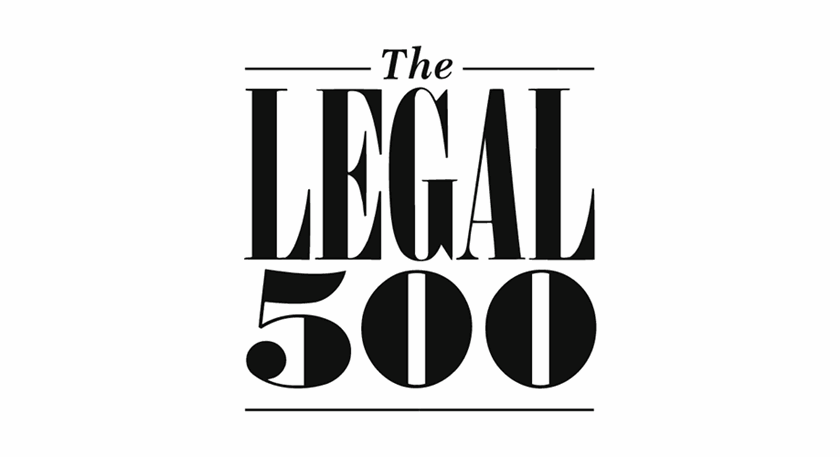Freedom of speech in universities: Spring 2021 update
Insight

The controversy surrounding free speech in universities is set to continue, following the publication last month of the text of the Government’s Higher Education (Freedom of Speech) Bill. This article sets out how the Bill will affect higher education institutions (HEIs) if it makes it through Parliament without substantial amendment. As you will see, we have also tried to consider the practical implications for HEIs.
Overview of the Higher Education (Freedom of Speech) Bill
- Strengthens the duties HEIs already have to protect freedom of speech within the law, and to have (and ensure compliance with) an associated code of practice.
- Imposes new duties on students’ unions – they have to protect freedom of speech and have and comply with a code of practice, just as HEIs must.
- Creates a new duty for HEIs to secure academic freedom for their academic staff, and applicants for academic roles, bolstering existing protections for academic freedom.
- Creates a new duty for HEIs to promote academic freedom and freedom of speech within the law.
- Introduces a new right for individuals to bring civil claims for loss they suffer as a result of the duties being breached.
- Introduces new registration conditions for HEIs relating to freedom of speech and academic freedom.
- Gives the OfS power to regulate students’ unions at approved (fee cap) providers, in relation to their new freedom of speech duties.
- Requires the OfS to create a scheme to deal with complaints about breaches of the duties of free speech and academic freedom.
- Creates a new role within the OfS of a Director for Free Speech and Academic Freedom.
Practical implications of the Bill for Higher Education Institutions (HEIs)
It is worth flagging that HEIs already have a duty, so far as reasonably practicable, “to ensure that freedom of speech within the law is secured for members, students and employees … and for visiting speakers”, Education (No. 2) Act 1986, section 43. This includes a requirement to ensure (again, so far as reasonably practicable) that use of their premises is not denied to a person or group on the grounds of their beliefs, views, policies, or objectives.
The Government has taken the view that the existing obligation isn’t working effectively, because HEIs face no legal consequences for non-compliance. The Bill attempts to remedy this, including by introducing the ability for individuals to bring civil claims for (alleged) breaches of the various duties.
The Bill defines “freedom of speech” as including “the freedom to express ideas, beliefs and views without suffering adverse consequences”. There are two things to note here. First, the Bill doesn’t say what amounts to an adverse consequence; for example, we query whether this is broader or narrower than the concept of “less favourable treatment” under anti-discrimination law. Secondly, the use of the word “include”: the Bill leaves room for doubt about what else is encompassed by the duty. Both these points make it difficult for HEIs to know how far their obligation will extend, and what sort of consequences might make them liable to being sued under the new right to seek compensation, discussed below.
Code of practice on freedom of speech
The duty to ensure access to premises has been expanded so that HEIs will have to ensure that the terms on which premises are provided are not based on an individual’s or group’s views or beliefs etc. “Ideas” has been put into the list of grounds on which access to premises must not be denied (or, under the Bill, granted on different terms), though it is unclear quite what this adds. In practical terms, HEIs will need to review leases / licenses to ensure that they are relatively neutral as to the views and beliefs of users of the premises.
The new duty to secure academic freedom requires HEIs to ensure that academic staff don’t lose their jobs or privileges, or reduce their career prospects at the HEI, because they have exercised their freedom of speech “within the law and within their field of expertise” to question received wisdom or put forward controversial or unpopular ideas. HEIs will also need to take steps to ensure that applicants for academic posts are not adversely affected for those reasons. This will not protect a chemist who expresses a controversial view on, say, colonial history, in the way that it would protect an historian, but our hypothetical chemist will still be protected by the general duty to protect free speech.
The Bill gives a new right to bring a legal claim for compensation against an HEI for breaching any of the duties outlined above. According to the Explanatory Notes published alongside the Bill, this will “enable individuals to seek … redress for loss they have suffered as a result of breach”, but it is unclear what sort of loss this would encompass. For instance, for what loss might an HEI be liable to compensate a controversial visiting speaker whose lecture is cancelled, other than any speaking fees and/or wasted travel expenses? Query whether more remote losses, such as a reputational damage or loss of future employment opportunities, would be foreseeable enough to be recoverable by bringing a claim. It is, however, clear that the ability to bring a claim is unlikely to be framed widely enough to enable the claimant to ask the Court to issue an injunction requiring the cancelled speaker / event to go ahead.
Although the law currently obliges HEIs to have a code of practice on freedom of speech (and take reasonable steps to ensure it is complied with), the required contents of this code are restricted to the organisation and conduct of meetings and other events on their premises. (HEIs can include other matters in their codes, but they don’t have to.) Under the Bill, HEIs’ codes will also have to set out their “values relating to freedom of speech”, and explain how those values uphold freedom of speech. Codes will also have to set out an HEI’s criteria for deciding whether to allow its premises to be used, and on what terms. If the Bill is passed into law, universities will need to review and update their existing codes of practice.
Key considerations from the Impact Assessment
At least once a year, each HEI will need to draw its students’ attention to its code of practice, and to its duty to promote freedom of speech and academic freedom. HEIs are also given a freestanding duty to “promote the importance of” those freedoms. The Bill and the Explanatory Notes are silent on what that might involve, but the Impact Assessment has the following suggestions:
- Ensure that students with a range of views are represented in student engagement work.
- Train staff and educate students on the importance of debate.
- Demonstrate how democracy works by actively promoting democratic processes in HEIs and holding Democracy Days.
- Frequently and publicly affirm the importance of freedom of speech, especially where individual staff and students have faced criticism for expressing lawful views.
- Ensure that there is a process in place for staff and students to report actions and behaviours they see, not just to make complaints when they consider their own freedom of speech has been unlawfully infringed.
This goes some way to explaining how universities whose student bodies are relatively placid (less “activist”) might need to take steps to encourage more debate on campus. This will be, perhaps, a somewhat artificial exercise, for something that is usually organic and student-led. There is also a question as to whether the practical suggestions within the Impact Assessment go too far in suggesting that debate and balance are indicators of freedom of speech; for example, if a university hosts a seminar on a controversial topic, does the new duty require it to invite speakers with opposing views, or can free speech be secured if only one side of the debate is heard? Similarly, to what extent does the legal requirement in the Bill to “take steps to achieve… the objective” of freedom of speech require any policing by or on the part of the HEI?
OfS requirements and subsequent recommendations for HEIs
Under the Bill, the OfS will have a new duty to promote the importance of free speech and academic freedom. The Bill suggests that the OfS may identify good practice and advise HEIs accordingly, but the more pressing point for the sector is that compliance with the various duties in the Bill will become one of the OfS’s conditions of registration, as will a requirement that the governing documents of HEIs be consistent with those duties. HEIs that are eligible for financial support will also have to keep the OfS informed about their students’ unions, though the Bill doesn’t say what sort of information those HEIs will have to supply. Until the scope of the OfS’s requirements is clarified, HEIs would be wise to keep a tidy paper trail showing how they – and, where relevant, their students’ unions – are complying.
The Bill also requires the OfS to establish a scheme for complaints about alleged infringements of HEIs’ duties of freedom of speech and academic freedom. The scheme will not only be open to those to whom HEIs currently owe those duties, but those to whom it used to owe them, such as former students and previous applicants for academic posts. That said, it will only be possible to make a complaint under the scheme after exhausting an HEI’s internal complaints systems and, if a complaint is upheld, the OfS can only make recommendations. The Bill expressly states that the scheme “may not authorise the OfS to require anyone to do or not do anything”, though an HEI might well take the view that the OfS could find it in breach of its new freedom of speech registration condition, if it doesn’t follow recommendations, at least in spirit. Nor is the scheme entirely powerless: HEIs will be obliged to comply with any requirements the scheme imposes on them, and face legal proceedings if they don’t. At this stage, there is no indication as to what those requirements might be.
According to the Bill, a new role at the OfS of “Director for Freedom of Speech and Academic Freedom” will be established and will be responsible for monitoring the OfS’s performance of its new functions, and for carrying out any of those functions that the OfS delegates to it. The Explanatory Notes suggest that this new Director will also oversee the complaints scheme.
The Bill contains a lot of ambiguity, making it difficult for HEIs to know how to prepare for the changes ahead. There are also questions as to how the Bill’s provisions will interplay with universities’ existing obligations under, for example, equality and employment law. It is to be hoped that the uncertainties will be thrashed out as the Bill makes its way through Parliament.
If you require further information about anything covered in this briefing, please contact Rachel Holmes, Jeremy Isaacson, Anisha Birk, or your usual contact at the firm on +44 (0)20 3375 7000.
This publication is a general summary of the law. It should not replace legal advice tailored to your specific circumstances.
© Farrer & Co LLP, June 2021







